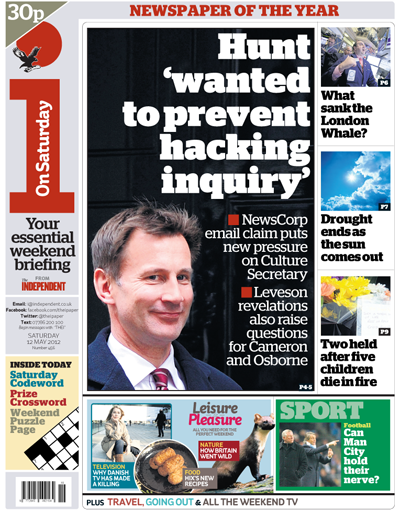i Editor's Letter: Rarely do we admit we don't know what we're doing

But what do you actually do?" It's a question I've asked all my adult life at social gatherings when it gets to the dreaded "what do you do?" moment, and the answer is: "I work in the City" (I would never respond: "I work in Kensington.") "Oh, it's too boring to explain" is the usual response. So, what do people in the City "do"?
Of course, that's a faux-naif question, but only partly. How many of us sometimes look in on other walks of life and wonder the same? It's more likely when the results of someone's day's labours are less tangible than say, producing a newspaper or baking bread.
Rarely does an individual ever admit that (s)he doesn't actually know what s(he) is doing. Scarily, those that have come closest recently include various City/Wall St types as they try to explain astonishingly large losses in unfeasibly complex financial transactions, where the potential liabilities of one individual can have such devastating knock-on effects.
The latest such case involves the venerable JP Morgan, which has just admitted a shock loss of $2bn (perhaps $3bn). In the spotlight is Bruno Michel Iksil, a JP Morgan trader known as the London Whale, who reportedly made huge bets that failed. There is no suggestion that he is another "rogue trader"; however, he was working within a "global hedging strategy". CEO Jamie Dimon blamed "errors, sloppiness and bad judgement" for the "egregious, self-inflicted mistakes". It's the closest you will ever get to a "we don't know what we're doing".
Well, if even JP Morgan doesn't know, then surely it's time for regulators to step in – belatedly - and simplify the complexity of investment banking? Because for the suffering rest of us, it really hasn't proved to be boring at all.
Follow @stefanohat
Join our commenting forum
Join thought-provoking conversations, follow other Independent readers and see their replies
Comments